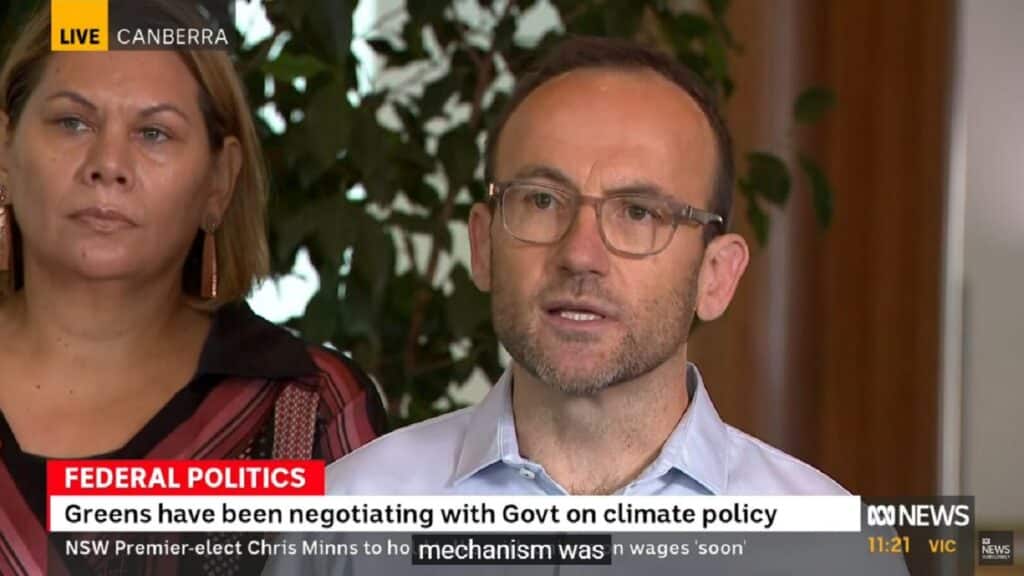The Greens have agreed to pass Labor’s Safeguard Mechanism in federal parliament, with leader Adam Bandt announcing a deal that includes a “hard cap” on emissions and a pollution trigger.
This deal means the Albanese government has secured the support it needs to pass its central climate change policy through the Senate. It comes after months of negotiations with the Greens and other members of the crossbench.
While there is no blanket ban on new coal and gas projects as the Greens have consistently argued for, Bandt said the government’s agreement to a “hard cap” on actual (not net) emissions will significantly restrict the development of new coal and gas projects. According to Bandt, this hard cap will not be able to be overcome by companies buying offsets, and the cap will be reduced over time.
Bandt indicated that under the hard cap, about half of the 116 new coal and gas projects currently in the pipeline would not be able to go ahead.
Bandt also said the Greens have secured a pollution trigger in the safeguard mechanism bill that will require the climate change minister to consider the impact of new projects on the hard emissions cap.
“The Greens have introduced a hard cap on emissions, meaning real pollution must actually come down and the coal and gas corporations can’t buy their way out of the cap with offsets,” Bandt said on Monday.
“This puts a limit on coal and gas expansion in Australia. Pollution will now go down, not up.”
The Greens also indicated that under the amendments the Greens have proposed, the Beetaloo and Barossa gas projects “have been derailed”. All “scope 1” emissions from the Beetaloo project will have to be net zero, with “scope 2″ and scope 3” emissions referred to the Ministerial Enegy Council.
“There are serious questions raised abou the whether these climate bombs will be financially viable now, raising the red flag to investors pouring money into these projects,” Greens senator and spokespeson for resources, Dorinda Cox said.
Labor’s Safeguard Mechanism bill will update the mechanism put in place by the previous Coalition government, and it will require Australia’s largest emitting facilities (around 215) to keep their net emissions below a cap, through cutting emissions or paying offsets.
Under the Greens’ amendments, corporations will need to justify their use of offsets if they use offsets for more than 30 per cent of their baseline.
In a statement, Climate Council CEO Amanda McKenzie said “This will be the Federal Parliament’s first reform to genuinely cut pollution in a decade”.
“Almost one year ago, Australians sent a clear message at the polls that they wanted our Parliament to act on climate change. Today, they are getting on with it. This will mean more clean, renewable power, and less pollution,” she said.
Climate Council Head of Advocacy Dr Jennifer Rayner said we know “need to throw the whole arsenal at tackling harmful climate change”.
“As a priority, Australia needs strong environmental laws that properly consider climate impacts, an end to fossil fuel financing and public subsidies, much tighter limits on offsetting to ensure we are achieving genuine and steep emissions reductions, and a ban on greenwashing so coal and gas companies can’t keep gaslighting Australians about their climate plans.”


